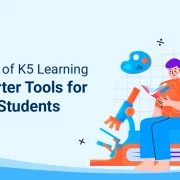
Revolutionize Your Learning: The Top Online Training Delivery Methods
Summary
Explore the most effective online training delivery methods available today, focusing on how they can transform your learning programs by enhancing engagement, accessibility, and learning outcomes.
In today’s time and technological advances wait for no one; online training has become essential for everyone to enhance their knowledge and skills and stay relevant.
Businesses, too, put a lot of weightage on training their workforce as a well-trained workforce is, after all, their best resource. Furthermore, with the rapid advancement of technology, traditional learning methods are becoming obsolete.
As a result, many organizations are shifting towards the latest online training delivery methods to provide a more efficient, flexible, and personalized learning experience.
In this article, we will discuss the top five learning delivery methods that have revolutionized the world of online training.
Gamification
Gamification is an online training delivery method becoming increasingly popular in recent years. It uses game design elements and mechanics to make learning more engaging and enjoyable.
Gamification learning involves integrating game-like mechanisms like a points system, badges for certain achievements, leaderboards to encourage competition, and progress bars into the learning process. It is highly effective in promoting active participation and motivation among learners.
The key advantage of Gamification is that it helps learners to retain information better. In addition, it allows learners to apply what they have learned in real-world scenarios, making the learning experience more practical and meaningful.
This method is especially useful in complex topics where learners must apply problem-solving skills to master the subject.
Pros
- Promoters have higher levels of engagement, competition, and motivation when compared to traditional training methods.
- It has been known to improve knowledge retention by at least 40%.
- It allows learners to retain information better by applying what they have learned in real-world scenarios.
- Training by Gamification gives instant feedback on one’s understanding of a specific subject.
Cons
- Some learners may find the game-like elements too juvenile or unsuitable for serious learning.
Microlearning
Microlearning is another popular online training delivery method that delivers information in concise learning modules. It involves breaking down complex topics into smaller and more manageable pieces of information.
Microlearning is highly effective in providing quick and efficient learning on the go.
Probably the biggest advantage of microlearning is that it allows anyone to learn at their complex topics at their own pace and at their convenience. Microlearning also allows learners to focus on specific areas of interest and fill knowledge gaps quickly.
This makes it highly suitable for busy professionals who do not have the luxury of time.
Pros
- Microlearning provides concise learning modules that learners can complete quickly.
- It enables learners to focus on specific areas of interest and fill knowledge gaps rapidly.
- It allows learners to learn at their own pace and convenience.
- It is suitable for busy professionals who have limited time for learning.
Cons
- It may not provide learners with the context or background information to fully understand the topic.
Virtual Reality
Virtual Reality (VR) has been around for a while but is the latest online training delivery method that has recently gained popularity in the professional training niche. It involves creating a simulated environment that mimics real-world scenarios to provide an immersive learning experience. In addition,
The primary advantage of VR is that it provides a safe and controlled environment for learners to practice complex tasks that may be too risky to learn on the job. It allows learners to gain hands-on experience in a safe and simulated environment.
Pros
- VR provides an immersive learning experience that mimics real-world scenarios.
- It allows learners to gain hands-on experience in a safe and controlled environment.
- It is suitable for complex tasks and procedures that require hands-on experience.
Cons
- VR technology can be expensive and may require specialized hardware and software.
Adaptive Learning
Adaptive learning is a game changer when it comes to smart and efficient online training delivery methods. It uses AI and machine learning algorithms to personalize the learning experience for learners based on individual needs.
Adaptive learning archives this by collecting data on the learners’ performance and adjusting the learning content to suit their learning needs best. As a result, it is highly effective in providing personalized and targeted learning to learners.
Adaptive learning is great for identifying knowledge gaps in the workforce and providing tailored training to each individual to fill those gaps, which will lead to better training and an equally skilled workforce.
Pros
- Adaptive learning personalizes the learning experience for each learner.
- It enables learners to learn at their own pace resulting in a more effective training experience.
- It is suitable for learners with different learning abilities and styles.
Cons
- It may not be suitable for learners who prefer a more structured approach to learning.
Mobile Learning
Mobile learning is an online training method that uses mobile devices such as smartphones and tablets to deliver learning content. It involves creating learning materials optimized for mobile devices that can be accessed anytime, anywhere.
As a result, mobile learning is highly effective in providing flexible and convenient training to professionals who are always strapped for time.
The essential advantage of mobile learning is that it enables learners to learn on the go. Furthermore, it allows learners to access learning materials anywhere, whether traveling or working.
Pros
- It allows learners to learn on the go, anywhere, and anytime.
- It enables learners to access learning materials on their preferred devices.
Cons
- Mobile devices may have limitations in terms of screen size and processing power.
Summing It Up
Online training delivery methods can potentially transform the world of education and professional training by providing learners with flexible, personalized, and engaging learning experiences.
The five learning delivery methods discussed here are some of the top and latest ones that institutions and organizations are implementing today. They can help improve education and learning worldwide to provide everyone with the skills and knowledge required to succeed in today’s highly competitive job market.
The success of these methods depends on the ability of institutions and organizations to create high-quality learning materials that are relevant and engaging.
Hurix Digital’s Learning management systems can help you do just that. If you are looking for the best Corporate Learning Solution, look no further than us. Get in touch with us today to learn more about how we can help your organization reach new heights.

A highly enthusiastic and motivated sales professional with over twenty five years of experience in solution selling of training-related applications and services. Maintains an assertive and dynamic style that generates results. Ability to establish long-term relationships with clients built on trust, quality of service and strategic vision. Specializes in financial services, higher ed, publishing and government in the areas of learning and development.



